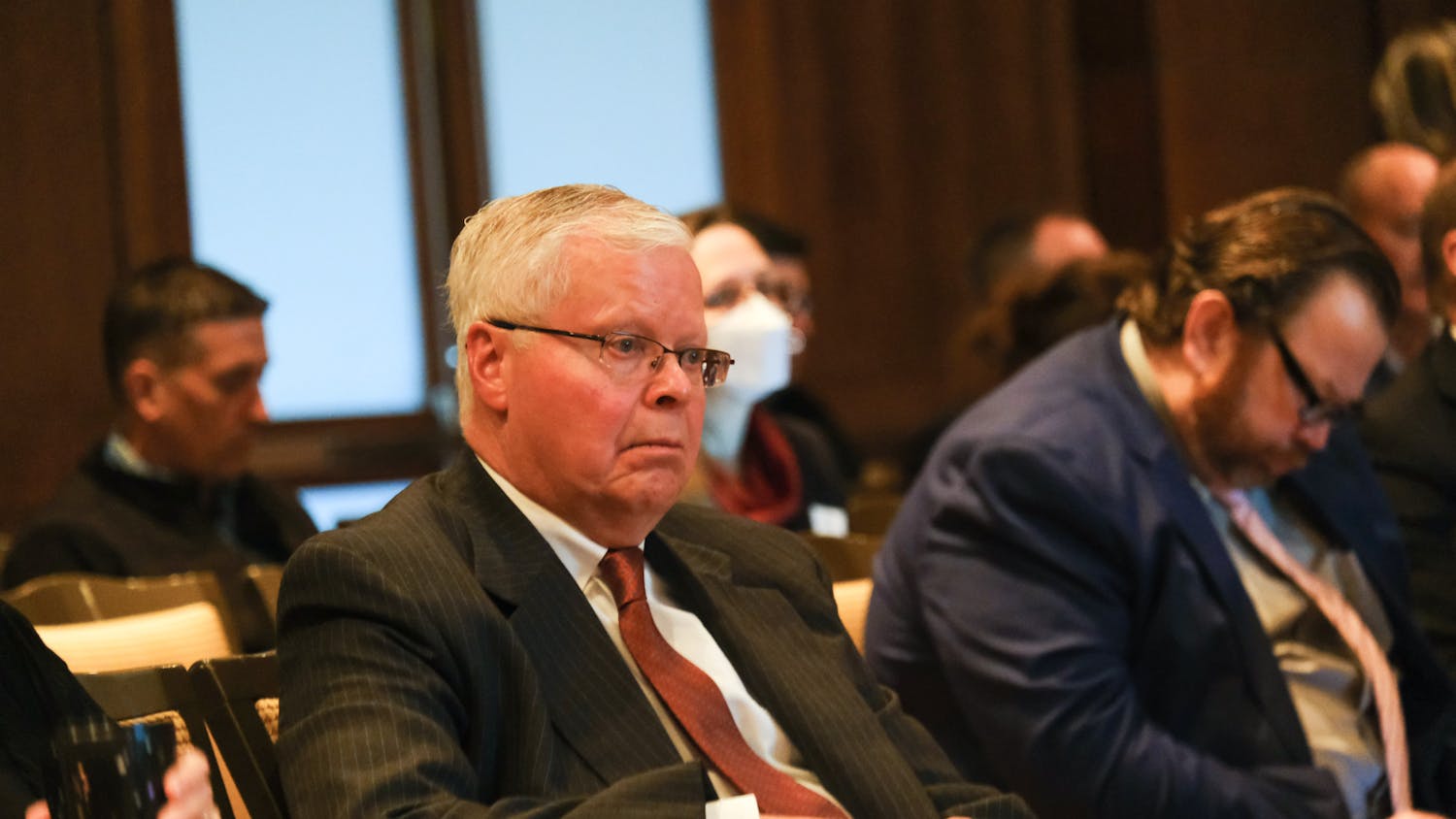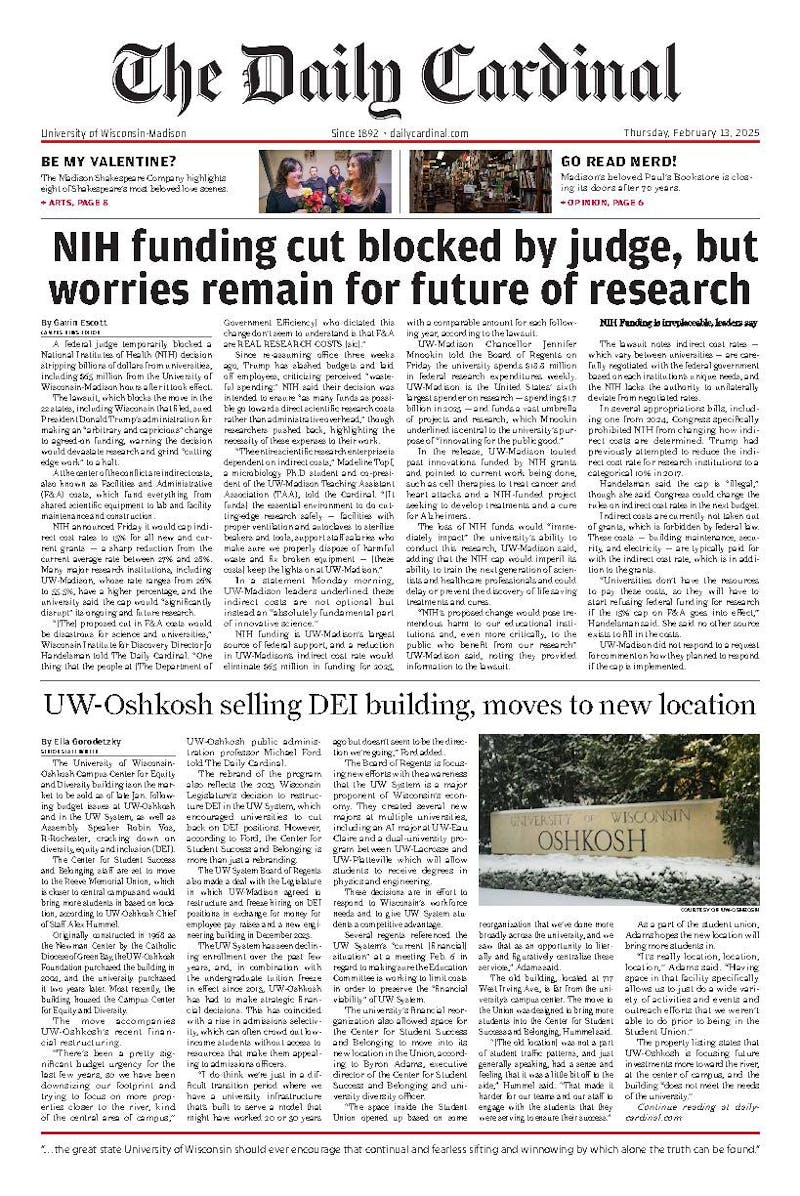After the UW System announced Tuesday they may raise graduate tuition for eight campuses, the Teaching Assistants’ Association co-president argued tuition raises resulted in revenue for the system but an increased burden for students.
Resident graduate students at the eight schools — Eau Claire, Green Bay, La Crosse, Oshkosh, Parkside, Stevens Point, Stout and Whitewater — will have a maximum increase of less than $200 in tuition prices. UW-Green Bay will have the largest increase, hiking up from $7,793 to $7,996.
The prices will also rise for non-resident graduate students at the eight universities as well as students in speciality programs like physical therapy at UW-La Crosse and computer science at UW-Whitewater.
Last December, the UW System committed to a tuition hike for non-resident, international and some graduate student programs. Those students are to see tuition raise more than 2 percent, amounting to $38,443 for non-residential students in 2020-’21.
When these tuition increases were announced, they were explained in great detail as a way to “generate revenue.” Chance McMahon, a UW-Madison doctoral student and co-president of the TAA, views this decision to increase tuition with a similar goal in mind.
“Since UW [System] has been combating budget cuts for years, raising tuition is another means of generating revenue, although it places the burden on graduate and undergraduate students,” McMahon said.
For years, the UW System has struggled to offer programs and keep faculty alongside frozen tuition. Those who reap the most benefit are in-state students, while nearly 40 percent of out-of-state students at UW-Madison pay more than double the cost.
This has led to organizations like the TAA to actively organize against the growing costs of both tuition and mandatory segregated fees.
“I strongly believe that the state government should increase funding for UW [System] rather than shifting that cost onto students, given the burden of student loan debt,” McMahon said. “A major concern I have, as TAA co-president, is the rising costs of tuition on graduate students unable to secure funding or who are in professional programs, who are at higher risk of having to pay out-of-pocket or who have to take out loans to attend graduate school.”
While the tuition increases may not directly impact the segregated fees, another concern for McMahon was the need for funds as further justification to not cover the cost of mandatory fees.
Those who fight back against the mandatory fee coverage believe that the cost is too expensive for university pockets, despite the segregated fee cost amounting to 0.2 percent of the overall budget.
“I worry that tuition increases across the UW System will continue, providing further justification for university administrators to oppose coverage of mandatory fees, even as such fees are a significant burden on graduate students,” McMahon said.
The Board of Regents will vote whether to increase the tuition prices in their meeting Friday.





